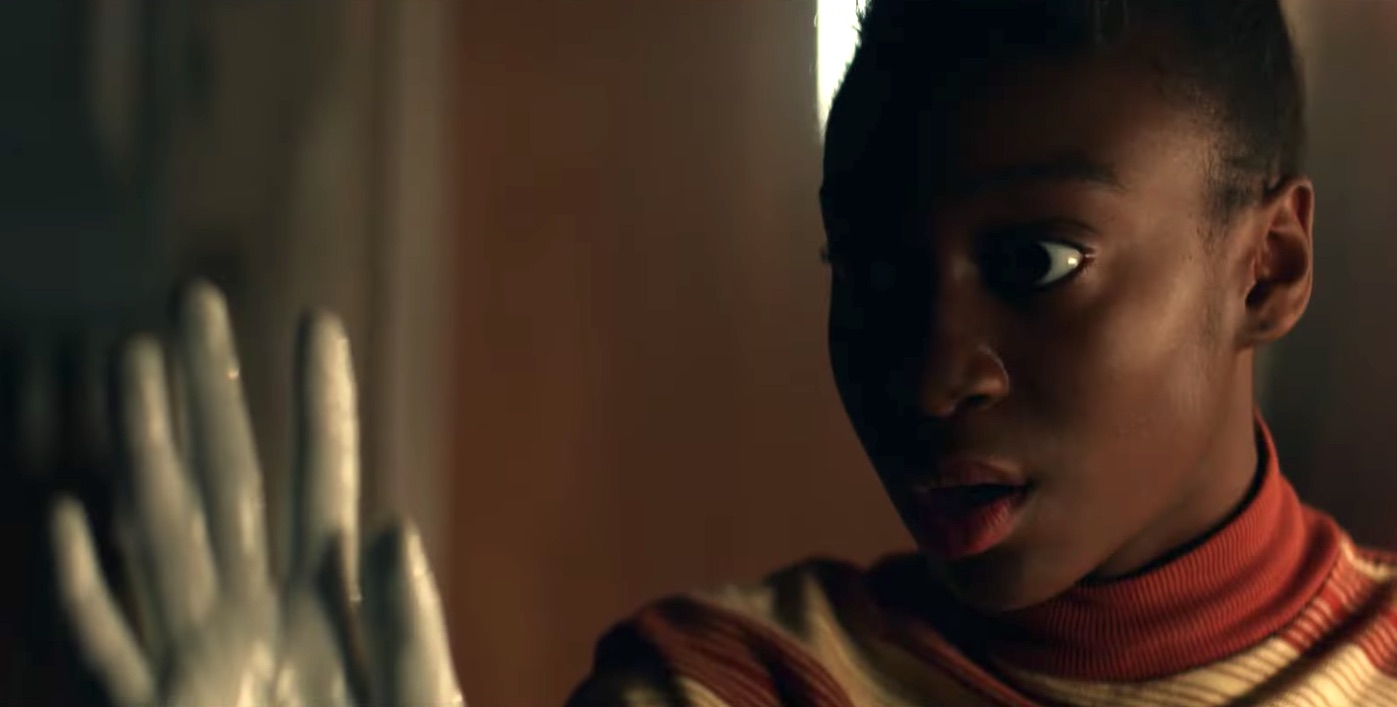What to Watch Verdict
'Them' is an incendiary exploration into the horrors of hatred that—through two episodes—has already reached a boiling point that promises no-holds-barred television you can't ignore.
Pros
- +
🥧 Jordan Peele meets James Wan.
- +
🥧 No subtlety or waiting games.
- +
🥧 Actors embrace inherent traumas.
- +
🥧 Scares, so far, leave their mark.
Cons
- -
🥧 Can this intensity sustain?
- -
🥧 Too early to see if plotlines are balanced.
Them is part of our SXSW 2021 coverage. You can find all of our reviews here.
I don’t want to belabor comparisons between Them and Lovecraft Country just because they’re recent, racially-charged horror episodics. Still, Them comes out swinging just as Lovecraft Country does (quite literally. Thanks, Jackie Robinson). Creator Little Marvin makes it very clear that audiences will behold extreme bigotry—domesticated hate-crimes—by channeling 1950s racism that has already been appropriately described as “Jordan Peele meets James Wan.” It is, quite imposingly, meant to parallel devolving opinions about race relations under today’s (the last four years) microscope and blends insidious haunted house scares with ghastly oppressive threats. In the vein of history cyclically repeating itself, golly does Them sear a message that means to leave a noticeable scar.
In September of 1953, Henry Emory (Ashley Thomas) moved his family from North Carolina to East Compton, California, as part of the “Great Migration.” Matriarch Lucky (Deborah Ayorinde) is cautious, and she should be—given how the all-white neighborhood panics over their pure community introducing "filth" (dialogue is crass for the time). Henry assures his family that they’re seizing opportunity, predominantly because his relocation is determined by an engineering career in a mostly-white facility. Henry and Lucky—alongside eldest daughter Ruby (Shahadi Wright Joseph) and youngest Gracie (Melody Hurd)—are breaking ground as the first colored family on the street, which comes with its immediate adversity that may or may not be supernatural as well. Over ten days, the Emorys discover Hell on Earth in Los Angeles as the likes of housewife Betty Wendell (Alison Pill) and her other white allies aim to drive a Black family from whence they came.
It’s a striking creation that aims to blend ‘70s exploitation horror with ‘50s “Pleasantville” commentary and still hybridize further with terrorizing paranormal influences. The midnight-black and firetruck-red opening credits are an alarming sight that sets an unsettled mood. Yet, soothing house colors provide this happy-go-lucky pastel suburb that’s very representative of the time but deceptively bright in ways that highlight the picturesque vibrance of rotten communities. The term “Pleasantville” intentionally recalls idyllic assumptions, which Marvin in-turn knowingly exposes through den mothers huddling and discussing the best ways to—in a matter of words—prevent an infestation from spreading. Husbands sipping American lagers push a step further in the garage, think-tanking bleach bones or broken window tactics for a more forceful welcome message.
As nightmares present themselves, the Emorys battle a plethora of demons. First, as Betty organizes a leisurely sit-in where local Jane Does and PTA members congregate outside the Emory property with chairs, tables, and radios blaring to-the-point tunes such as “Civilization” aka “Bongo, Bongo, Bongo (I Don't Want to Leave the Congo)” in such a stress-inducing act of demoralization. The problem is, the littlest Emory doesn’t seem safe within her own walls either, as she begins chatting about her favorite educational book's mascot Miss Vera appearing in person, lunging from shadows with a gangly gothic schoolteacher physique. Outside, the Emorys combat despicableness that’s played pitch-perfectly by dimples-and-grins clones like Betty who spew vile rhetoric about the preservation of wholesomeness. Inside, the Emorys endure forces unknown as Henry accuses his wife of losing grip while Gracie warns of an invisible manifestation of decades-old slave heritage.
The first two episodes do a remarkable job of generating jarring moments of unthinkable treatment that causes audiences to think about race relations of any era. Performers shine under spotlights whether Henry shrieks into a wadded ball of bathroom paper after his manager sneaks microaggressions into a work meeting, or Gracie performs an impromptu song-and-dance to Stephen Foster’s “Old Black Joe” as per the teachings of Miss Vera. Lines blur between Clark Wendell’s (Liam McIntyre) by-association plan to assassinate the Emory family’s pooch Sarge to Gracie’s after-bedtime confrontation with Miss Vera, who’s seen clutching Sarge’s collar (trigger warning/spoiler: very dead Sarge). Communications are already breaking down between loved ones within the Emory domain, which adds another layer of anxiety and complexity onto an already frightful assertion of intended evil either next-door or from another realm.
So far, Them is a striking ‘50s horror story that unleashes monsters both spiritual and of porcelain flesh tones. Black actors engage with post-traumatic paranoias that must be repressed around law enforcement officers or within public scrutiny. White actors immorally emphasize the repulsiveness of discrimination within their not-even-coded speech. As effective Ashley Thomas’ choked-down pie sequence is as tears stream while sugary sweetness reminds of mustard gas flavors—as rageful Shahadi Wright Joseph’s gun-waving outburst is while her maternal instincts switch into protection mode—Alison Pill’s distillation of white power mentalities is an equally transgressive highlight of Little Marvin’s Amazon series. Even the “allies” we’ve met so far remain in question to highlight Black hesitation toward white supporters today. So much rich symbolism and outrage in such a short amount of time, which has efficiently teed Them’s first season as culturally representative horror with messages sharp and voices blaring through megaphones.
Matt Donato is a Rotten Tomatoes approved film critic who stays up too late typing words for What To Watch, IGN, Paste, Bloody Disgusting, Fangoria and countless other publications. He is a member of Critics Choice and co-hosts a weekly livestream with Perri Nemiroff called the Merri Hour. You probably shouldn't feed him after midnight, just to be safe.












